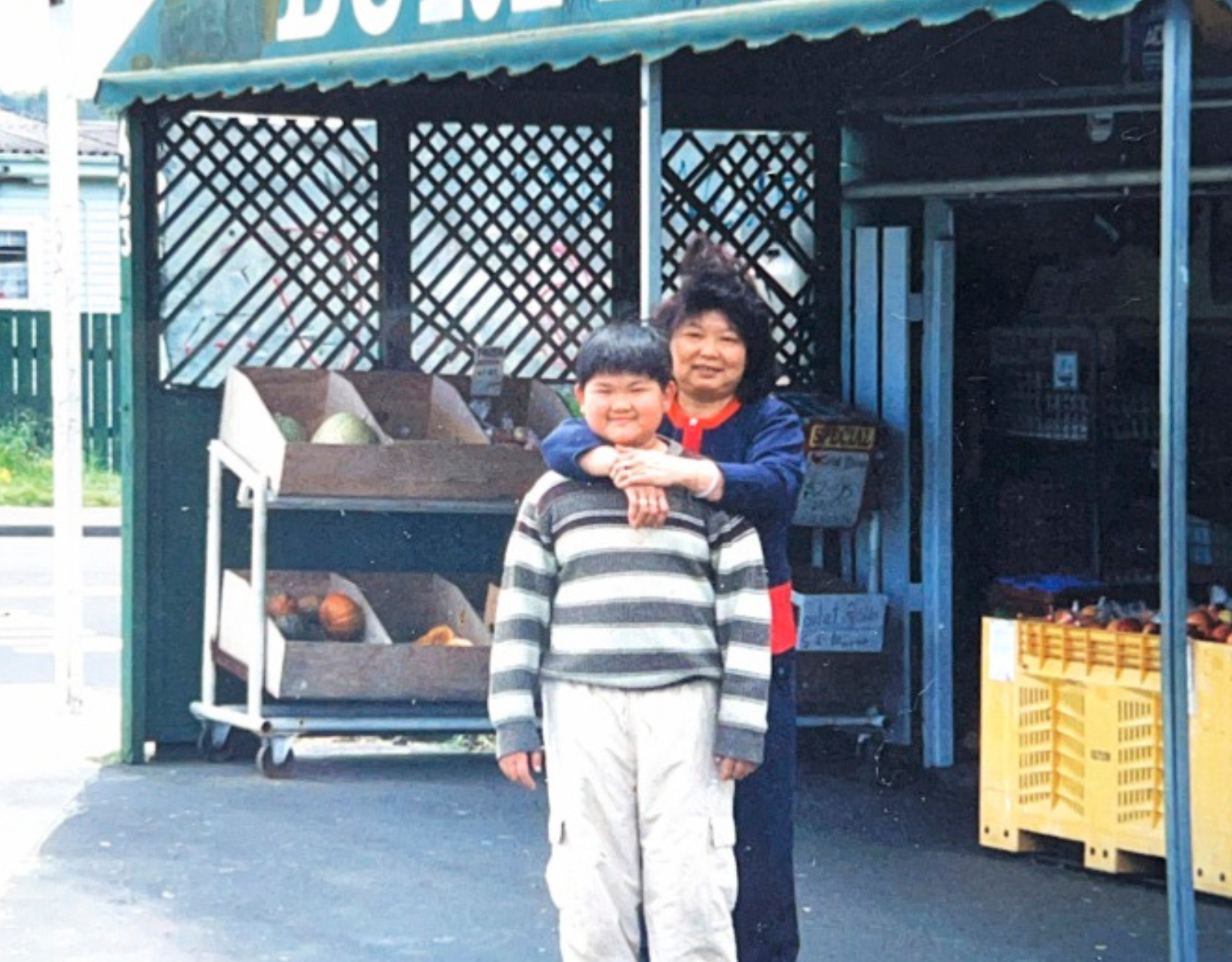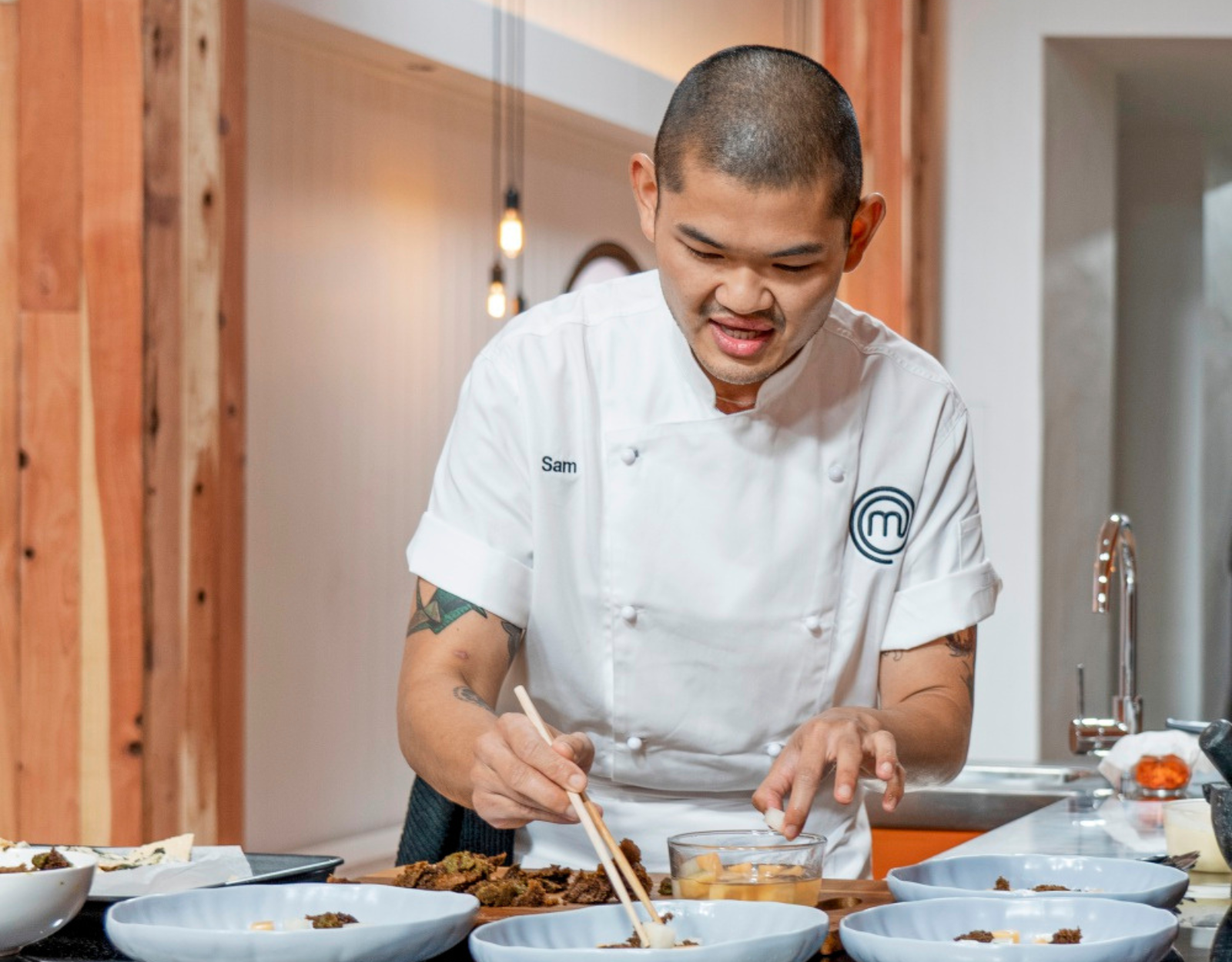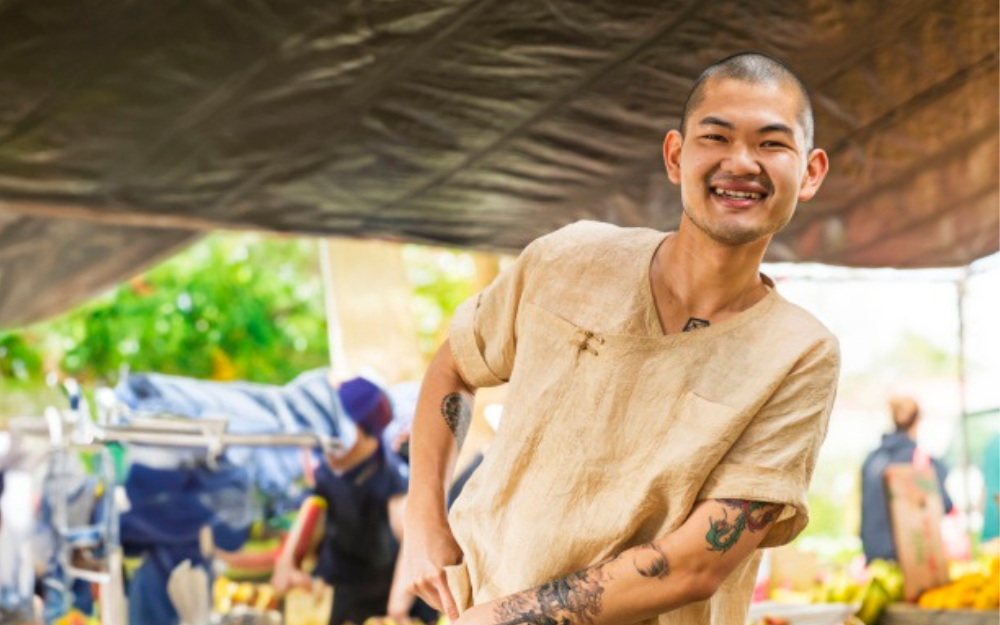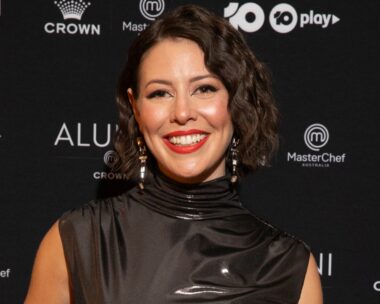From growing up immersed in Fijian cuisine to winning MasterChef NZ and releasing his new cookbook Modern Chinese, food’s been part of Sam Low’s fondest memories. Yet there was a time that the joys of eating, along with identity struggles, caused such hurtful bullying that he blocked out parts of his youth.
In June, the 31-year-old chef returned to Auckland’s Mt Roskill Grammar School to launch Pride Week and was puzzled when a counsellor reminded him about a session he’d had after being bullied for his sexuality.
“I had so many insecurities that I shut out lots of my younger memories to protect myself,” Sam tells. “In primary, this kid went, ‘No wonder you’re fat!’ because I ate two pies for lunch. I was obese, closeted, feminine and Asian, so I was trying to hide so many things. It’s only now I’m retracing my steps and figuring out how everything shaped me.”
Born in Fiji, Sam grew up exploring his parents’ noodle factory, hanging at cafés they owned and sampling rotis. Moving to Aotearoa after the 2000 Fiji coup, he felt like an outcast and continued being teased as he reached 110kg around age 16.
His mum Fong Siu Fong and dad Hon Chong meanwhile struggled with their business as they realised imported products like taro wouldn’t sell in New Zealand like they did in Fiji. His mother recalls Sam and his two brothers also being confused about their culture in their new environment.

Sam Low and his mum.
Sam’s parents anticipated a more academic career path, but supported his dreams after he began winning culinary contests. Starting a food and beverage apprenticeship at SkyCity eventually transformed Sam’s approach to eating.
“Just the increased mobility made me lose weight, which led to people complimenting me, which felt so good! So then I started exercising and eating less. My parents were those Chinese parents who were like, ‘Finish everything!’ But I realised eating healthier made me feel more energetic and better about myself.
“Today, if I have an unhealthy meal, the next day, I’m eating a vegetable stir-fry and I work out a lot. It’s a smarter way of living, but there’s also that fear of going back to being obese.”
While learning to eat better made Sam more body-confident, he continued grappling with hiding his sexuality, and struggled to navigate race and class barriers in the culinary world. He bought 15 Gordon Ramsay books and veered towards European cooking because it felt “appropriate”.
However, an identity crisis in his twenties prompted Sam to embrace his Chinese roots.

Making his parents proud – dad Hon Chong and mum Fong Siu Fong.
“I was living in Melbourne and I started calling Mum to ask for recipes I already knew. It was an excuse to talk to my parents because food was our common ground. It was like saying, ‘You mean something to me and I want to relive the moments you’ve showed love.’
“In my book, 50% of the recipes are childhood dishes I’ve adapted. When my mum flicked through, she would go, ‘That was your favourite!’ I was able to show that her culture wasn’t lost moving here and that my parents’ teachings haven’t gone to waste.”
Fong Siu Fong enthuses, “I love the dishes he’s included because they’re from his childhood, but his interpretation of them. He makes some dishes better than I can! It’s impressive he can use what I’ve taught him and elevate it.”
Sam mainly used ingredients available at supermarkets and he also wanted to challenge common food imagery.
“I don’t think I’m feminine or masculine, so I didn’t want the photos to lean either way. With the sago pudding, photographers and stylists leaned towards pastels and pink, but I went, ‘Let’s go bold, black and mysterious!'”
Sam hopes to inspire aspiring queer or Chinese-Kiwi chefs, noting how he only had international role models, like chef Brandon Jew, who he recently met in San Francisco.

The cooking star says when it came to mealtimes, his mum was like “finish everything”!
“I don’t see any other Chinese person doing what I’m doing here, so I’m chopping the grass blind. Going overseas and talking to my food heroes made me see what I’m doing has larger purpose. I want to empower the next generation.
“Travelling through Vancouver and San Francisco was amazing because they have a rich history with the Chinese population and the queer movement – basically, me! Meeting people in those communities made me feel less alone.
“It’s crazy because the Chinese population has been in New Zealand since the gold rush, similarly to America, yet we don’t have the historical museums, Chinatowns or rich cultural movement.
All that trickles into the queer community.”
Sam has felt more freedom with his identity since coming out to his parents two years ago. They’ve continued showing him love and are undergoing counselling to enhance their acceptance.
And while he enjoyed a rom-com-style fling in Vancouver, he’s currently single.
“I wish Sam finds a partner who will make him happy, help him reach his goals and maybe have a family one day,” says Fong Siu Fong. “But that’s totally up to him.”
Modern Chinese by Sam Low (Allen & Unwin NZ, $50) is on shelves now.
 Vanessa Wu
Vanessa Wu




